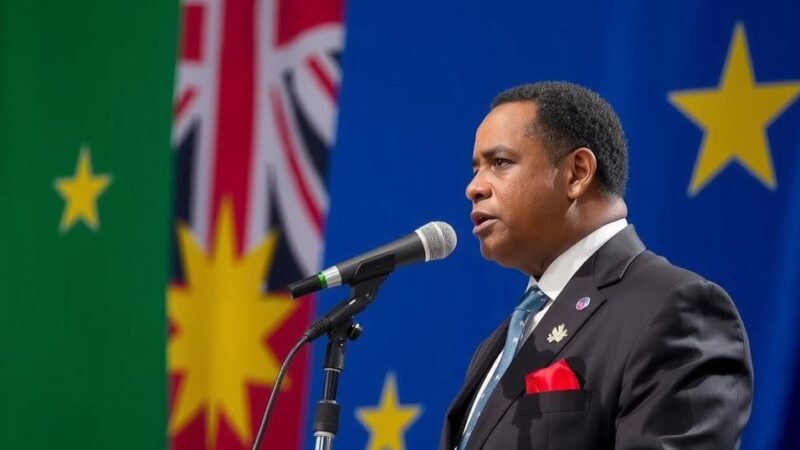President Javier Milei of Argentina dismissed Foreign Minister Diana Mondino after the country voted at the UN to lift the US embargo on Cuba. The dismissal reflects a potential shift in foreign policy as Milei appointed Gerardo Werthein as the new foreign minister. Argentina’s vote was aligned with 186 other UN members, contrasting with the positions of the US and Israel.
On Wednesday, President Javier Milei of Argentina dismissed Foreign Minister Diana Mondino after the nation voted at the United Nations in favor of revoking the long-standing US embargo on Cuba. This decision was communicated by presidential spokesman Manuel Adorni, who announced that the new foreign minister would be Gerardo Werthein, formerly Argentina’s ambassador to the United States. The vote at the UN saw Argentina joining 186 other member states in supporting the resolution to lift the embargo, which has been in effect for over sixty years. Only the United States and Israel, both allies of President Milei, voted against the resolution, while Moldova abstained from voting. Following Mondino’s dismissal, President Milei expressed approval of a government that does not support or condone dictatorial regimes, highlighting a commitment to democratic values and human rights. Historically, Argentina has opposed the embargo against Cuba, and the recent actions reflect the complex diplomatic landscape the country navigates, particularly in relation to its ongoing claims over the Falkland Islands, a British territory.
The US embargo on Cuba has been a contentious issue in international relations since its inception in 1962. Imposed as a response to Cuba’s shift to a communist government, the embargo restricts economic and diplomatic ties between the United States and Cuba. Over the decades, many nations have advocated for an end to this policy, citing humanitarian reasons and the need for diplomatic engagement. The recent vote at the UN reiterates a growing consensus among member states favoring the lifting of the embargo. Argentina’s historical stance against the embargo aligns with its broader foreign policy objectives, which include garnering support from nations that may influence its territorial claims, specifically regarding the Falkland Islands. The sacking of Foreign Minister Mondino indicates potential shifts in Argentina’s foreign policy under President Milei’s administration, reflecting a more traditional alignment with US interests, particularly concerning issues perceived as threats to democracy.
In summary, President Javier Milei’s dismissal of Foreign Minister Diana Mondino following Argentina’s vote at the United Nations in favor of lifting the US embargo on Cuba signals a significant shift in the country’s foreign policy. The appointment of Gerardo Werthein as the new foreign minister points to a potential realignment with US and Israeli interests, amidst the backdrop of Argentina’s historical voting patterns and territorial claims regarding the Falkland Islands. The unfolding diplomatic implications warrant close observation as Argentina navigates its relationship with both Cuba and its western allies.
Original Source: www.barrons.com






